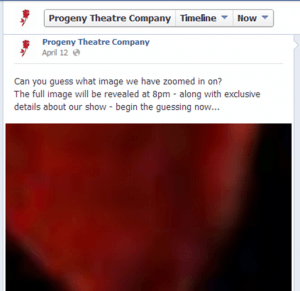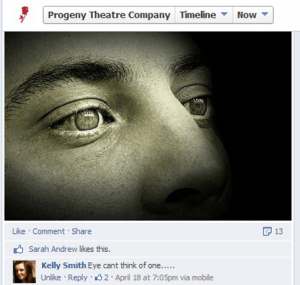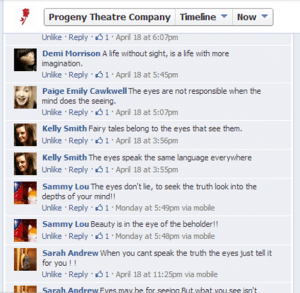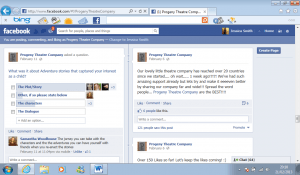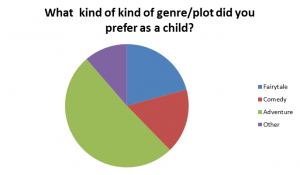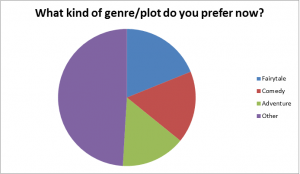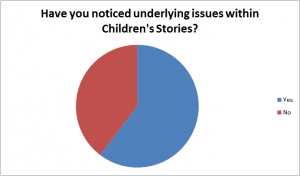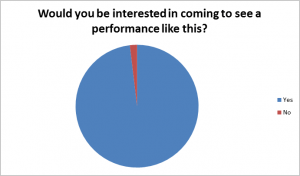Competitions
In order to boost involvement with our audience we decided to hold competitions on our social media sites. The first competition was ‘just for fun’. We took an image of a rose and zoomed in on it. We then uploaded it onto both Twitter and Facebook. The main aim of the challenge was for our followers to guess what image we had zoomed in on. The responses that we got included ‘fake blood’ and ‘red riding hood’s cloak’. All through the day we kept in contact with them by replying to their guesses (without revealing the answer). To encourage responses, from our audience, we revealed the picture at 8pm along with exclusive details about our show. This is due to the fact that if they wanted to find out this information then they would need to participate (even if this only involved looking at the posts, rather than posting an answer themselves). The information that we revealed was the performance date. We did it like this, rather than just posting a status about it, as it was a more entertaining way, that built up tension, as well as enabling us to communicate and engage with our audience.
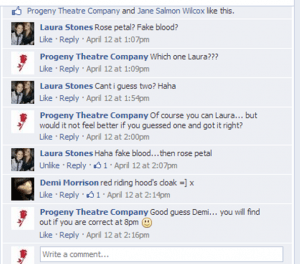
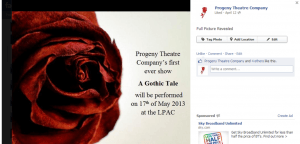
Although this competition helped to build a connection with our audience, it was just a teaser for the main contest. The winner of the main competition would receive two free tickets to our show A Gothic Tale. To obtain the free tickets we contacted Craig Morrow, the artistic director of Lincoln Performing Arts Centre, and explained what we wanted to do and asked if we able to get any complementary tickets. To which he replied that we were. Again we wanted to do this to encourage engagement with our company and to also generate interest in coming to see our production. The competition involved us providing them with a picture and they had to create a caption to go along with the image. The picture was of a blind man with glazed over eyes. We thought that this was an interesting image, that related to our performance, and one that would cause a response. It definitely generated a reaction as many people got involved. We got entries such as ‘fairy tales belong to the eyes that see them’ and ‘everyone sees things in their own way, one persons fantasy may be another persons nightmare’.
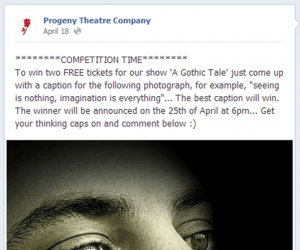
The competition ran for seven days. For the whole week the rest of the group were not allowed on the Facebook site, as they were the ones voting, and we did not want them to see who had written which caption in order to ensure that the voting was fair. Once the contest was closed, I created a post, on our private group, and commented with each entry separately below. Like so:
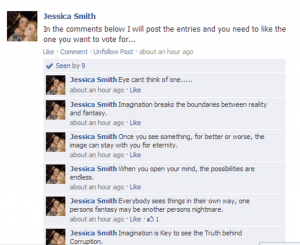
However, there was a tie in the voting so I made a new post with the three highest ranking entries. And while we established the winner we let the participants know about the tie so that they knew why there was a delay.
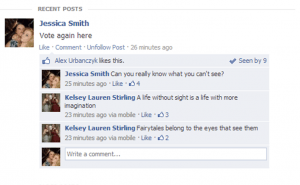
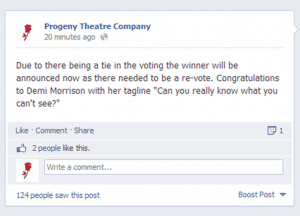
The winner was Demi Morrison with the caption ‘Can you really know what you can’t see?’ As well as winning two free tickets, her caption was also printed on our programs along with the image, to congratulate her.
Word Count: 545
